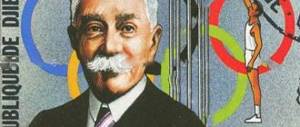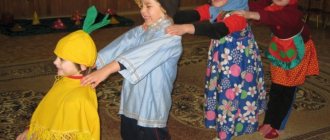History of the Olympic Games
In Hellas (Ancient Greece), the Olympic Games were one of the most revered holidays, and later not only of Hellas, but of the entire ancient world. Well, today you can hardly meet a person who has not heard at least something about these games. In this article we will look at the history of the Olympic Games briefly but to the point.
According to Greek mythology, the founder of the game was the equally famous hero Hercules. The first reliable sources about the games include records of the names of the winners of the games that took place in 776 BC. The games were held in the Altis district, which was sacred to the ancient Greeks, also called Olympia.
The games were held every four years, and they lasted five days. According to tradition, they began with a pompous procession, as well as a sacrifice for the god Zeus. And finally, on a measured field (“stadium” in Greek), which could accommodate 40,000 spectators, sports competitions began.
The competition program included: wrestling, fist fights, running, running with weapons, javelin throwing, discus throwing and competitions in chariots drawn by four horses. Later, from the 4th century BC, not only athletes, but also speakers, historians, poets, musicians, playwrights and actors began to participate in the games.
Not everyone could attend the games, much less participate in them. Slaves, women, and persons on trial for certain crimes could not take part in the games, even as spectators. Once it turned out that the famous fist fighter was trained by his mother, wearing men's clothing, and since then athletes and coaches were required to appear completely naked at competitions.
Those who won the Olympic Games received great respect and honor. Monuments were erected to the winners, poets composed laudatory odes in their honor, they were pompously greeted in their homeland and awarded with wreaths made from olive branches. But the privileges did not end there; they were provided with food for life at state expense, exempted from taxes and given large financial sums. During the games, any hostilities between the warring Greek powers ceased. These games were considered a real celebration of peace and served to strengthen cultural ties among the Greek states.
The Olympic Games continued until 394 AD, and were banned as a pagan holiday by the Roman Emperor Theodosius I, at the insistence of the Christian clergy.
However, in 1894, the rebirth of the Olympic Games took place, it was then that the International Sports Congress took place in Paris. 34 countries were represented at the congress (including Russia). At the congress it was decided to resume the Olympic Games. As a result, the new Olympic Games opened in Athens on April 5, 1896, which have since been held every 4 years. However, due to wars, some of them did not take place: in 1916, 1940, 1944.
The modern Olympic Games are the largest complex sports competition in our day. There is no permanent program of games, as it changes regularly. As a rule, the program contains more than 20 summer sports.
For example, the program of the XVI Games for men included: gymnastics, athletics, freestyle and classic wrestling, diving, weightlifting, swimming, boxing, rowing, modern pentathlon, kayaking and canoeing, skeet and bullet shooting, equestrian sports, water polo, cycling, fencing, sailing, basketball, football, grass hockey. And the women competed in fencing, kayaking, swimming, diving, gymnastics, and athletics.
This is the history of the Olympic Games briefly outlined in this article. It should also be noted that in these games there is no official team championship, but only individual competitions. The winner in any sport becomes the owner of a gold medal, the one who takes second place receives a silver medal, and for third place a bronze medal is given.
OLYMPIC GAMES IN ANCIENT GREECE Completed by Plume E.A. - presentation
OLYMPIC GAMES IN ANCIENT GREECE Completed by Plume E.A.
The birthplace of the Olympic Games is Ancient Greece, namely the sanctuary of Olympia. This is where the Olympic flame of the modern Olympic Games is born
OLYMPIC FLARE CEREMONY
The ancient Greeks created many wonderful legends about the appearance of the first Olympic Games. According to one of them, the Games were founded by Hercules, who celebrated his victory and dedicated it to Zeus. Temple at Olympus (model)
Good news! Everyone - to Olympia! Sacred peace has been declared, the roads are safe! May the strongest win!” These words were carried by thousands of messengers throughout all the cities of Ancient Greece in the year of the Olympic Games
At the first games, athletes competed only in the 192.27 m race. This distance was called “stadium”. The name “stadium” comes from this word.
RULES FOR THE OLYMPIC GAMES The Games were held every 4 years. During the Olympic Games, a sacred truce was declared throughout Greece. In the ancient Olympic Games, only men and only Greeks competed and were spectators. Almost a year before the start of the games, all participants were required to start training in their hometown. The athletes trained tirelessly for 10 months in a row, and exactly a month before the opening of the games they had to arrive in Greece and continue training near the city of Olympia.
The games were led by the “Helladonians”, they were both coaches and referees. They also kept order in the Olympic village. The Games lasted five days.
The main competition was the pentathlon, which included: running, long jump, javelin throwing, discus throwing, wrestling. Other competitions were also held: Horse riding, Chariot racing, Fist wrestling (boxing). COMPETITIONS
Chariot racing
Great names of the Ancient Olympiad. The winners of the Olympic Games were called “Olympians” and were awarded laurel wreaths or an olive branch. Korobos is the first champion of the ancient games. Leonidas is a 12-time winner in the race. Milo is the winner of the 7 Ancient Games. Varazdat is the last Olympic champion
With the arrival of the Romans in Greece, attitudes towards the Olympic Games changed significantly. The Olympic Games began to be regarded as pagan feasts, so in 394 AD the games were canceled by the Roman Emperor Theodosius I. It was only in 1896 that the Frenchman Pierre de Coubertin revived the idea of ancient competitions and organized the first modern Olympic Games. They include many types of ancient competitions. For example, a relay race, when one runner passed the torch to another. The last runner lit the fire on the altar. This custom, in a modified form, was revived in the modern Olympic Games as the ceremony of lighting the Olympic flame.
THANK YOU FOR YOUR ATTENTION!!!
Olympic symbols
Olympic symbols are attributes of the Olympic Games used by the International Olympic Committee to promote the idea of the Olympic Movement throughout the world. The Olympic rings mean continents, 5 rings mean 5 continents. Olympic symbols include: flag (rings), anthem, oath, slogan, medals, fire, laurel branch, fireworks, mascots, emblem. Any use of Olympic symbols for commercial purposes is prohibited by the Olympic Charter.
Olympic rings. The symbol of the Olympic movement consists of five intertwined rings on a white background: blue, yellow, black, green and red. The emblem was invented by the founder of the Olympic movement, Baron Pierre de Coubertin in 1913 and presented at the VII Summer Olympic Games in Antwerp in 1920. According to de Coubertin, the rings symbolize the five continents whose countries participate in the Olympic movement.
Hymn. The anthem of the Olympic Games is performed when raising the Olympic flag during the opening of the next games, as well as at their completion and in some other cases.
Oath. One of the outstanding athletes takes an oath of integrity of the competition on behalf of all competitors. Then one of the judges takes an oath of fair and objective judging.
Proposed by de Coubertin in 1913. Revives oath-taking similar to the ancient one. It was first officially pronounced in 1920 at the 1920 Olympic Games in Antwerp.
Olive branch. The olive branch, or cotinos, is a branch folded into a wreath that is presented to the winner along with a gold medal. The tradition of presenting it was revived at the XXVIII Summer Olympic Games in Athens in 2004.
Firework. The Olympic salute is a variation of the Roman salute, but with the arm raised higher. This greeting was used at the VIII and XI Summer Olympic Games in Paris in 1924 and Berlin in 1936, respectively. After the end of World War II, due to its great similarity with the Nazi salute, it is no longer used, although it is not officially prohibited.
Flag. The Olympic flag is a white silk panel with the Olympic emblem embroidered on it. It was first used at the opening ceremony of the Games in Antwerp in 1920 and was donated to the International Olympic Committee by the National Olympic Committee of Belgium.
The 1920 flag presented at the Olympic Games in Antwerp was replaced by a new one in 1988, presented at the XXIV Olympic Games in Seoul. The old flag is now kept in the Olympic Games Museum in Lausanne, Switzerland.
Talismans. The mascot for each Olympics is chosen by the host country at its discretion. Typically, the mascot is chosen to be an animal or other stylized image that is associated in the minds of most people with the host country. The Olympic mascot first appeared at the Games in Mexico City. The mascot was a jaguar, one of the favorite animals in Mexico.
Games emblem. Each Olympic Games has its own unique emblem, symbolizing the host city and country. Usually the Olympic rings are an element of the emblem.
Presentation for children “Winter Olympic Games” presentation on physical education on the topic
Slide 1
So that everyone can become an athlete, everyone should know sports!!! physical education instructor N.P. Minina Winter Olympic Games
Slide 2
The symbol of the Olympic Movement - five intertwined rings represent friendship between all continents: Europe (blue), Asia (yellow), Africa (black), Australia (green), America (red). The Olympic Games are sports competitions that take place once every four years and involve athletes from different parts of the world.
Slide 3
The opening ceremony is always solemn and colorful. This is a real holiday for both participants and spectators
Slide 4
Holding the Olympic Games is a very ancient tradition, but the Winter Olympic Games appeared in the 20th century, they were first held in 1924. The first Paralympic Winter Games were held in 1976 - international sports competitions for the disabled.
Slide 5
During the Olympics, the Olympic flame is lit - a symbol of friendship and fair sports competition.
Slide 8
One of the most beautiful sports is figure skating. The program of the Winter Olympic Games includes singles and pairs skating
Slide 9
There are many cross-country ski races for men and women
Slide 10
“Shooting skiers” competitions – biathlon – are of great interest
Slide 12
Some sports are only for very brave people, for example ski jumping
Slide 14
Alpine skiing is one of the most exciting, fast, sparkling winter sports.
Slide 15
Snowboarding is a relatively new sport that involves descending from snow-covered slopes and mountains on a special equipment - a snowboard.
Slide 16
Speed skating is a sport in which you need to cover a certain distance on an ice stadium in a closed circle as quickly as possible.
Slide 18
Bobsleigh is a downhill race on a specially made ice track on a controlled, streamlined sled. The sled is mounted on two pairs of runners: the front pair is movable, the rear pair is fixed. Because of its shape, such a sled is often called a “shell”
Slide 19
Luge is a high-speed descent on a one- or two-seater sled along a specially constructed track. The faster the better.
Slide 20
Ice hockey is a sports game played on a special ice-filled platform by two teams of six players.
Slide 21
Curling is a winter ice sport in which two teams of four players compete in the precision of stops (called stones) made of granite. While the stone is sliding, teammates rub the ice with special brushes, which allows them to adjust the trajectory of the stone.
Slide 22
We all love different sports, but we rejoice at the medals that our Russian athletes win
Slide 23
This is the pride of our country!!!
Olympic games 2014
For only the second time in the
history of the Olympic movement, our country is honored to host the main sports competitions on the planet.
Before this, a Russian city became the capital of the Games only once - in 1980, when Moscow hosted the 22nd Summer Olympic Games. Our country is preparing to host the Winter Olympics for the first time. The choice of Sochi as the capital of the 22 Winter Games has become one of the most striking events in the recent history of Russian sports. A total of 7 cities competed for the right to host the 2014 Olympics, including: Spanish Jaca, Kazakhstan
However, only 2 candidates became the favorites to advance to the final stage of selection: South Korean Pyeongchang and Russian Sochi. The result of this intense struggle was summed up on July 4, 2007 during the 119th IOC session in Guatemala City, when Sochi was officially chosen as the capital of the 2014 Olympic Games, ahead of PyeongChang by a margin of only 4 votes .
Opening ceremony on February 7, 2014, closing ceremony on February 23, 2014.
98 sets of medals were played in 15 sports. After the end of the Olympic Games, the Winter Paralympic Games were held at the same venues.
Mascots of the 2014 games: Leopard, White Bear, Bunny.
Paralympic Games: Ray, Snowflake.
Medal standings: 1st place - Russia - 33 medals. 13 gold, 11 silver, 9 bronze.
We supported the Russian national team and held our school Olympic Games in support.
After the presentation, to make it interesting, relax a little, and at the same time consolidate the knowledge acquired. As part of the project about the Olympic Games, we conducted a quiz on the topic: “Olympic Games” (Appendix 1)
Everyone actively answered the questions, sometimes they made mistakes, but mostly they remembered everything.
Conclusion of the project
As a result of research work:
- Learned the history of the Olympic Games.
- We learned about the significance of the Olympic Games in the life of the peoples of the world.
This is not only a competition of the best athletes.
This is the development of friendship between peoples.
This is propaganda of the great value of health.








